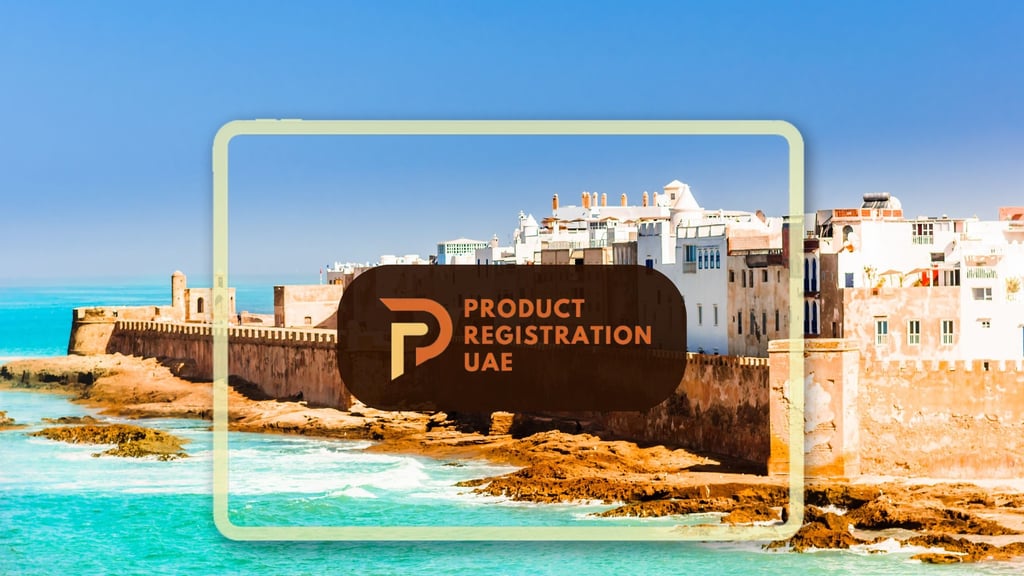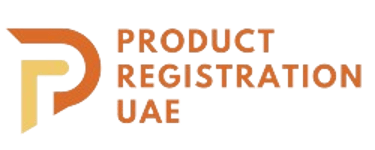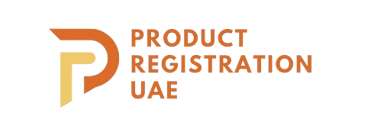Enter Morocco’s Market With Ease
Navigate Morocco’s product registration with expert support. From compliance to documentation, we help ensure smooth entry and success across regulated sectors.
9/6/20245 min read


Morocco's Product Registration Landscape:
A Strategic Analysis for Market Entry
Morocco's unique position as a gateway to North Africa, coupled with its dynamic economic environment, presents a compelling opportunity for businesses seeking to expand their market presence.
However, the intricacies of product registration in Morocco demand a nuanced understanding of the country's regulatory framework, overseen by various government bodies.
This comprehensive guide offers an in-depth analysis of the product registration process across multiple industries, providing actionable insights for businesses aiming to achieve compliant and sustainable growth in the Moroccan market.
Regulatory Authorities Overseeing Product Registration
The product registration landscape in Morocco is characterized by a complex interplay of regulatory bodies, each responsible for specific sectors or product types.
Understanding the role and jurisdiction of these authorities is crucial for navigating the registration process effectively:
1. Ministry of Industry, Trade, Green and Digital Economy
- Primary role: Governs overall product compliance
- Key responsibilities:
- Oversees regulations related to imports
- Enforces consumer protection laws
- Sets and maintains industrial standards
- Recent developments: In 2023, the Ministry launched a digital platform to streamline the product registration process, reducing processing times by an average of 30%.
2. Moroccan Food Safety Authority (ONSSA)
- Primary role: Ensures food and beverage safety
- Key responsibilities:
- Verifies products meet Moroccan health and safety standards
- Oversees labeling requirements for food products
- Conducts regular inspections of food production facilities
- Statistical insight: As of 2024, ONSSA has certified over 15,000 food products, with a 12% year-over-year increase in certifications for organic products.
3. Ministry of Health
- Primary role: Regulates health-related products
- Key sectors overseen
- Pharmaceuticals
- Regulatory focus: Ensures strict compliance with safety and efficacy regulations before market entry
- Recent initiative: Introduced a fast-track registration process for essential medicines in 2023, reducing approval times by up to 50%.
Key Certification and Registration Requirements
The certification and registration requirements in Morocco vary significantly depending on the product category. Below, we provide an in-depth analysis of the essential requirements for key product categories:
1. Food and Beverage Products
ONSSA Certification
- Requirement: All food and beverage products must obtain ONSSA certification before market entry.
- Process overview:
1. Submit detailed product dossier, including:
- Complete ingredient list
- Nutritional information
- Manufacturing process details
2. Undergo laboratory testing for safety and quality
3. Comply with packaging and labeling standards
- Timeline: Average processing time is 45-60 days, subject to complexity
- Cost: Varies based on product type, ranging from 5,000 to 20,000 Moroccan Dirhams
Halal Certification
- Applicability: Mandatory for meat products; highly recommended for processed foods
- Certification body: Moroccan Institute for Standardization (IMANOR)
- Process highlights:
1. Submit application with product details and manufacturing process
2. Undergo on-site inspection of production facilities
3. Product testing for halal compliance
- Validity: Certifications are typically valid for one year and require annual renewal
- Market impact: Products with Halal certification have shown a 25% higher market penetration rate in Morocco
2. Cosmetic Products
Good Manufacturing Practices (GMP) Compliance
- Regulatory body: Ministry of Health
- Key requirements:
1. Proof of adherence to international GMP standards
2. Detailed safety assessment report
3. Complete ingredient disclosure
- Documentation needed:
- Product formulation details
- Safety data sheets for all ingredients
- Stability testing results
- Processing time: Typically 3-4 months for initial review
Labeling Requirements
- Mandatory bilingual labeling: Arabic and French
- Essential information to include:
- Product name and function
- List of ingredients (INCI names)
- Manufacturer's details
- Expiry date or Period After Opening (PAO)
- Batch number
- Special considerations: Any claims (e.g., "organic," "natural") must be substantiated with additional documentation
3. Medical Devices
Registration with the Ministry of Health
- Classification system: Moroccan authorities use a risk-based classification system similar to the EU MDR
- Documentation required:
1. Technical file including device description, intended use, and risk analysis
2. Clinical evaluation report
3. Post-market surveillance plan
- Additional requirements for high-risk devices:
- Clinical trial data (if applicable)
- Detailed risk management file
- Processing time: Can range from 6 months to 2 years, depending on device classification
Import Licensing
- Governing body: Ministry of Health in collaboration with Customs authorities
- Key steps:
1. Obtain import license prior to shipment
2. Submit Certificate of Free Sale from country of origin
3. Provide Declaration of Conformity
- Renewal: Import licenses typically require annual renewal
- Recent change: As of 2024, a new expedited pathway for innovative medical devices has been introduced, potentially reducing registration times by up to 40% for qualifying products
Challenges and Compliance Strategies
Entering Morocco's market presents several challenges that businesses must address strategically:
1. Language and Documentation
- Challenge: All official documents must be in Arabic and French
- Solution strategy:
- Engage professional translation services early in the process
- Develop a glossary of industry-specific terms to ensure consistency across all documents
- Cost implication: Budget for translation services, which can account for 5-10% of total registration costs
2. Local Standards and Testing
- Challenge: Moroccan standards may differ from EU or US regulations
- Adaptation strategies:
- Conduct gap analysis between Moroccan and international standards
- Invest in local testing facilities or partnerships for efficient compliance verification
- Case study: A European food manufacturer reduced time-to-market by 30% by establishing a local quality control lab in Casablanca
3. Supply Chain and Importation Protocols
- Key considerations:
- Customs duties and tariffs
- Compliance with Morocco's trade agreements (e.g., Morocco-EU Association Agreement)
- Best practices:
- Develop a comprehensive import strategy, including logistics and warehousing plans
- Consider partnering with local distributors familiar with importation nuances
- Statistical insight: Companies utilizing local partners for importation reported a 40% reduction in customs-related delays
4. Regulatory Updates and Changes
- Challenge: Keeping abreast of frequent regulatory changes
- Solution:
- Establish a dedicated regulatory intelligence function
- Engage with local industry associations for real-time updates
- Recent example: The introduction of new e-labeling guidelines for certain medical devices in 2023 caught many importers off-guard, leading to significant delays
Additional Fees to Consider for Product Registration in Morocco
Navigating Morocco's product registration process involves several costs that vary depending on the product category and regulatory requirements. Below are some key fees businesses should consider:
Import Duties and Tariffs: Import duties for food products range between 10-40%, with processed foods often attracting higher rates compared to raw agricultural items.
Pharmaceuticals and Medical Devices: Registration fees for pharmaceuticals can range from 10,000 to 30,000 MAD, while medical devices, especially high-risk ones, may cost between 15,000 to 50,000 MAD.
Product Testing Fees: Laboratory testing fees for food, pharmaceuticals, or cosmetics typically range from 2,000 to 5,000 MAD per batch.
Translation Costs: Since product documentation and labels must be in both Arabic and French, translation fees can range from 500 to 1,500 MAD per document.
Halal Certification: For products requiring Halal certification, the certification process generally costs between 5,000 to 15,000 MAD.
Consultancy and Legal Fees: Engaging local regulatory consultants or legal advisors for comprehensive support can cost between 10,000 to 50,000 MAD, depending on the services required.
For more accurate and up-to-date fees specific to your product category, please contact us directly to discuss your registration needs. Our team is ready to assist you with all the financial aspects of the registration process.
Strategic Considerations for Sustainable Market Entry
Successfully entering the Moroccan market requires a multifaceted approach that goes beyond mere regulatory compliance.
Businesses should consider the following strategies for long-term success:
1. Develop strong relationships with local regulatory consultants and legal advisors
2. Invest in cultural competency training for team members involved in the registration process
3. Implement a robust quality management system that aligns with Moroccan regulatory expectations
4. Consider establishing a local presence or partnerships to navigate regulatory challenges more effectively
5. Stay informed about Morocco's economic development plans and align product offerings with national priorities
By adopting a comprehensive approach to product registration and market entry, businesses can capitalize on Morocco's growing economic opportunities while ensuring full regulatory compliance.
For more information on ensuring compliance with Moroccan regulations, visit our Cosmetic Product Registration Services page to explore how we can assist in successfully navigating the product registration process.
Need personalized guidance on Morocco's product registration process?
Our team of experts is ready to assist you every step of the way.
Chat with our Chatbot on the bottom right corner for immediate answers to your questions, or fill out our contact form (Contact US) for a tailored consultation.
We'll get back to you as soon as possible with the insights you need to succeed in the Moroccan market.
Continue Reading:
For further insights, we invite you to explore our in-depth guide on Product Registration in Egypt, offering valuable strategies for navigating the regulatory landscape.
Also Learn how to navigate the regulatory landscape and successfully register your products in Tunisia by reading our detailed guide on Entering the Tunisian Market.


